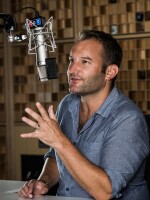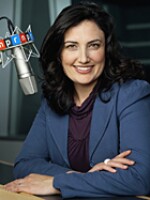MADELEINE BRAND, host:
From NPR West, this is DAY TO DAY. I'm Madeleine Brand. Coming up, Saddam Hussein begins his second trial. This time he's accused of orchestrating a genocide against Iraqi Kurds.
That was one reason given by President Bush to justify the war three years ago. He talked about Iraq and other issues at a news conference this morning. The president said there's an urgent need to get an international peacekeeping force into southern Lebanon.
President GEORGE W. BUSH: The international community must now designate the leadership of this new international force, give it robust rules of engagement, and deploy it as quickly as possible to secure the peace.
BRAND: NPR's David Greene was at that news conference. He joins me now from the White House. And David, what more did we hear from the president on this subject?
DAVID GREENE reporting:
Well, he spoke about the subject straight off the bat before taking any questions. He said he wants international troops in Lebanon as soon as possible to enforce the resolution.
He made clear the U.S. isn't going to be sending ground troops, though, for that force. But he said they'll be helping in lots of other ways: logistics, intelligence.
And then he went through a list of how the U.S. is helping in other ways. He said half the humanitarian relief promised to Lebanon has been delivered and the U.S. is even helping to clean up an oil spill on the Lebanese coast.
Of course the lingering question is whether any of this is going to address the root causes of the Israeli-Hezbollah conflict, which is what he said the goal was from the beginning.
BRAND: Well, one of them being disarming Hezbollah. What did he say about that?
GREENE: Absolutely. And he was asked about that very directly. Are you still going to demand that Hezbollah be disarmed? And let's play some tape of how he answered that.
President BUSH: Hopefully over time Hezbollah will disarm. You can't have a democracy with a, you know, armed political party willing to bomb its neighbor without the consent of its government.
GREENE: You heard him say hopefully. And that was pretty striking. He went on to say that if Hezbollah is not disarmed, the situation might remain the status quo along the Lebanese-Israeli border.
And of course the reason Mr. Bush had said all along that he was standing by and allowing Israel's attacks on Lebanon and on Hezbollah to continue was because he insisted he wanted the threat from Hezbollah taken out. And today he seemed to be suggesting that hasn't happened yet and seemed to be leaving the open question whether it will.
BRAND: Mm-hmm. And let's turn to Iraq for a moment. Many experts there saying there is now a civil war in that country. Did the president say anything about that?
GREENE: He did. He was asked about that. And he gave one of those squishy answers. There's been all this talk about civil war, he said, and he's concerned about it. I mean, you tell me what that means.
But he seemed to want to show that people out there are talking about civil war. He knows that possibility exists while avoiding all the headlines that would come out of it: President Bush declares a civil war is raging in Iraq.
He spoke a long time about staying the course, as we always hear from him. And he insisted that the alternative, having Saddam Hussein still in power, would be worse than the situation now.
He also said at one point that the history of the Middle East has not been written yet. So he seemed to be biding some time and acknowledging that Americans are concerned about the war.
And he made a quick turn to politics He was eager to talk about that. He said that he wasn't questioning the patriotism of his critics in the Democratic Party, but he framed their view as wanting to get out of Iraq, and he said that that would be very dangerous if it was a policy they put in place.
BRAND: Well, let's talk about domestic politics for a minute, and the anniversary of Hurricane Katrina is approaching. Was the president asked about that, about what his administration has done in the last year?
GREENE: He was. He said his administration has done a lot. But he shifted a lot of the responsibility to local and state governments on the Gulf Coast. He said there's federal money that's waiting there. He said the big problem is housing, but he said they have to get the money to the people. He also said this is a huge storm and it's going to take a long time to rebuild.
BRAND: NPR White House correspondent David Greene. Thank you, David.
GREENE: My pleasure, Madeleine. Transcript provided by NPR, Copyright NPR.







